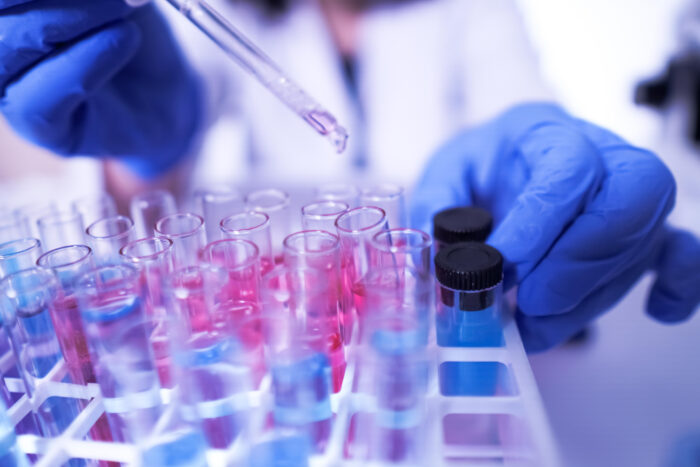
As the Covid-19 pandemic highlighted vulnerabilities in the medical supply chain, cell and gene therapy manufacturers had already been doing a delicate dance to get these new treatments to patients.
Cell therapies, which are made by engineering human cells, are still prohibitively expensive, and are developed in a time-consuming, multi-step process that is mostly manual. For example, in CAR-T immunotherapy treatments, a patient’s own T cells are harvested and engineered to recognize a patient’s cancer. After they’re multiplied in a lab, they’re sent back to the patient, and delivered through an infusion.

Solving Healthcare’s Provider Data Problem Starts with Interoperability
Break down the silos. Take control of your provider data.
But there are a lot of critical steps in between, including figuring out what cells need to grow and differentiate, and ensuring each sample is matched to the correct patient in every step of the manufacturing process.
Panelists discussed how to overcome these unique challenges in a discussion at MedCity’s INVEST Precision Medicine Conference, moderated by senior biopharma reporter Frank Vinluan.
Right now, every cell and gene therapeutics company has its own “cookie recipe,” or approach to manufacturing, said Jason Foster, CEO of Ori Biotech, a startup focused on cell and gene therapy manufacturing.
“Not only do they have their own recipe, they want their own oven,” he said. “Could we create standards by which we don’t have to start over every time at the very beginning?”

What Are Healthcare Organizations Getting Wrong about Email Security?
A new report by Paubox calls for healthcare IT leaders to dispose of outdated assumptions about email security and address the challenges of evolving cybersecurity threats.
Even as blockbuster hopefuls like Kymriah and Yescarta gain FDA approvals, scaling up these treatments has proven to be a stumbling point. For companies that are still in the earlier stages of developing a cell therapy, having a manufacturing plan is critical, Foster said.
“The challenges of getting beyond tens of patients, everyone’s kind of stumbled so far on,” he said. “Oftentimes, academic research isn’t focused on scale. … By the time you worry about it, it’s almost too late. We’ve had a number of folks from inside commercial cell and gene therapy companies say we don’t know that we’ll ever be able to get our process under control and costs to go down far enough to get a return on investment of what we’ve put into this therapy.”
Slots at contract research organizations book up quickly, while building a facility from scratch takes years and hundreds of millions of dollars, leaving companies to project their future needs years in advance. His approach to the problem is to build a more modular, scalable manufacturing process.
The pandemic also brought existing supply chain inefficiencies into focus, putting clinical trials on hold and leading to shortages in much of the equipment needed to make these treatments. Manufacturers are feeling the impact of Covid-19 now, said Claudia Zylberberg, founder and CEO of Akron Biotechnology, as reserves of plastic bags, tubes and gloves are now depleted.
“It’s global. We’re not talking about cells in clinical trials. We’re talking about basics, plastic bags, that is the level we’re talking about,” she said.
In one case, there was no wood for a crate to ship a machine to the lab. There are also less flights to ship materials back and forth.
“If we learn from here, this is the worst-case scenario,” she said. “Nothing is just-in-time anymore, and we need to plan with a little bit of a cushion every time.”
Photo credit: appledesign, Getty Images






